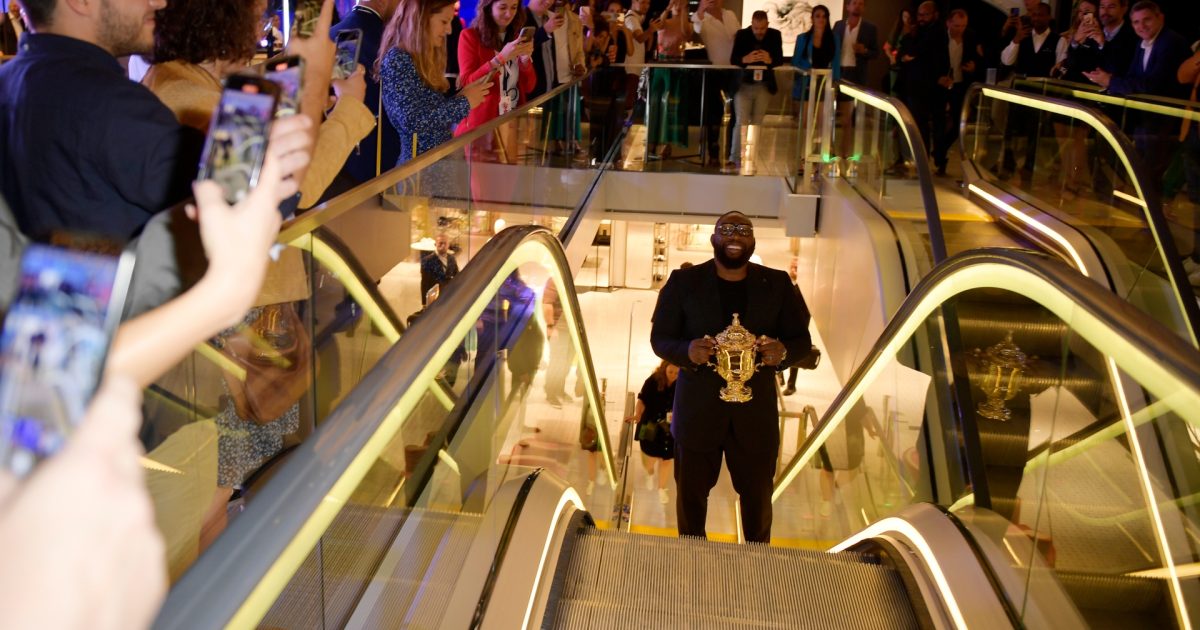The 20 base camps that are ready to host the Rugby World Cup teams

Nine regions in France are set to host the 20 Rugby World Cup teams from this weekend. Eighty-nine towns and cities across the country originally applied to be a base camp host and those chosen after a detailed process started in 2019 are now ready to see four years of preparation come to fruition.
Beyond the competition’s 10 host match cities, each qualified team was offered three base camp options spread around nine different regions with England, for instance, choosing a coastal base camp that looks across the Channel to Hastings for the duration of their pool games.
It was current Wallabies boss Eddie Jones, Steve Borthwick’s predecessor, who last year nominated Le Touquet-Paris-Plage, a small seaside town in Normandy, as the best place for the English to prepare for their upcoming Pool D matches versus Argentina (in Marseille), Japan (in Nice), Chile and Samoa (both in Lille).
In recent weeks the local airport took the decision to change its name to Elizabeth II Le Touquet -Paris-Plage International Airport. Authorities in Le Touquet had contacted Buckingham Palace six days after the Queen died on September 8 last year to seek permission for the name change in order to commemorate her and her visit to the town in the 1930s.
Elsewhere, defending champions South Africa will also take up accommodation on the French coast, with Toulon named as their base camp. However, the scenery will be very different for the Lyon-based All Blacks, the Tours-hosted Ireland and the host nation France, who will be based at Rueil-Malmaison on the outskirts of Paris.
Allowing more people to engage with the World Cup is the idea behind having base camps separate from the match cities. A World Rugby statement explained: “Team base camps will provide communities throughout France with the opportunity to share in the excitement of Rugby World Cup, and teams with access to the very best facilities.
“Beyond the competition’s 10 host cities, nine French regions have been designated to welcome and host the participating teams. They will be at the heart of a Rugby World Cup that will allow more people across the nation to engage with rugby’s pinnacle event.
“The team base camp choices are the result of a detailed process started in March 2019 by the France 2023 organising committee. The process started with a successful ‘call for expression of interest’ which led to 89 applicants across the country.
“Following the initial application phase, a pre-selection was undertaken based on two major objectives: To offer high-level facilities for qualified teams to prepare and train during Rugby World Cup 2023 in an optimum performance environment; and to optimise teams travel based on their pool phase matches, with an emphasis on train travel to minimise carbon emissions.
“Following an extensive technical evaluation and visits from November 2021 to January 2022 by team representatives, each qualified team was presented with three base camp options, with a final decision made by the team itself.”
RUGBY WORLD CUP 2023 TEAM BASE CAMPS
POOL A
New Zealand: Lyon (Auvergne-Rhone-Alpes)
France: Rueil-Malmaison (Ile-de-France)
Italy: Bourgoin-Jallieu (Auvergne-Rhone-Alpes)
Uruguay: Avignon (Provence)
Namibia: Aix les Bains (Auvergne-Rhone-Alpes)
POOL B
South Africa: Toulon (Region Sud)
Ireland: Tours (Centre-Val de Loire)
Scotland: Nice (Region Sud)
Tonga: Croissy sur Seine (Ile-de-France)
Romania: Libourne (Nouvelle-Aquitaine)
POOL C
Wales: Versailles (Ile-de-France)
Australia: Saint-Etienne (Auvergne-Rhone-Alpes)
Fiji: Bordeaux (Nouvelle-Aquitaine)
Georgia: La Rochelle – Ile de Re (Nouvelle-Aquitaine)
Portugal: Perpignan (Occitanie)
POOL D
England: Le Touquet-Paris-Plage (Hauts-de-France)
Japan: Toulouse (Occitanie)
Argentina: La Baule-Escoublac (Pays de la Loire)
Samoa: Montpellier (Occitanie)
Chile: Perros-Guirec (Bretagne)


































